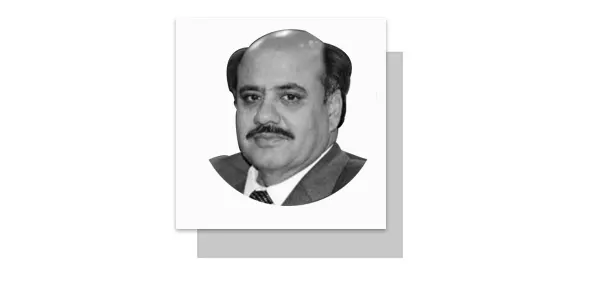THE relations between India and Pakistan have taken a severe hit since the Pahalgam attack on April 22, 2025.
The Modi Government’s hyper-knee-jerk reaction to the attack exposed the Bharatiya Janata Party’s ulterior motives to divert the public’s outrage over its misgovern onto Pakistan having ingredients to alter ugly stability in the region into a hot war between nuclear-armed India and Pakistan.
The attack at the Baisaran meadow—a tourist hotspot—near Pahalgam in the Anantnag district of the Indian Illegally Occupied Jammu and Kashmir (IIOJK) resulted in the killing of 26 people and 17 people injured.
The disturbing factor is that without proper investigation and substantial evidence, the Indian Government concluded that Pakistan was behind the tragic shootings of tourists.
Notably, the Resistance Front’, a hitherto unknown entity, claimed responsibility for the attack by stating that those targeted were not ordinary tourists but were affiliated with Indian security agencies.
Modi Government is habitual in scapegoating Pakistan for concealing its misgovernance’s repercussions and sustaining its popularity in the Hindutva constituency domestically.
Its frequently repeated favourite narrative is that Pakistan has been pushing fighters across the heavily militarized Line of Control (LoC) between the two countries to launch attacks on Indian forces.
Conversely, Islamabad denied the allegations and always offered New Delhi a neutral international probe into its acquisitions, including the recent allegations about Pahalgam.
Notably, even sane voices in India are questioning the Modi Government’s false narrative that ‘all is well’ in IIOJK.
India’s opposition leader in the Lok Sabha, Rahul Gandhi, opined that the rulers should move beyond “hollow claims” of peace in IIOJK.
Instead of admitting its intelligence failure and security forces’ incompetency in protecting the tourists in Pahalgam, the Indian ruling elite has been accusing and threatening Pakistan.
Indian Defence Minister, Rajnath Singh, warned, “Those responsible and behind such an act will very soon hear our response, loud and clear.” He added, “We won’t just reach those people who carried out the attack.
We will also reach out to those who planned this from behind the scenes on our land.
” He failed to realize that any kinetic action by India against Pakistan would invite quid pro quo plus a response by Pakistani defence forces.
On 23 April2025, the Cabinet Committee on Security (CCS), India’s highest decision-making body on national security, chaired by Prime Minister Narendra Modi, decided to sanction a series of punitive actions against Pakistan to deflect the world’s attention from India’s brutality in IIOJ, repression of minorities internally and transnational terrorism by raising false-flags.
The CCS announced the closure of the Attari border checkpost and ordered Pakistanis in India under the SAARC Visa Exemption Scheme to leave within 48 hours.
It also declared the defence, military, naval and air advisers at the Pakistani High Commission in New Delhi persona non grata and asked them to leave within a week.
Anticipating Pakistan’s response, New Delhi called back its defence, navy and air advisers from the Indian High Commission in Islamabad.
The Indian allies, especially the United States, need to refrain India from violating international law and military adventurism.
For instance, on April 23, 2025, India immediately suspended the 1960 Indus Water Treaty (IWT) with Pakistan.
The treaty is a water-sharing agreement between Pakistan and India facilitated by the World Bank.
The unilateral suspension of IWT is a clear violation of international law and the United Nations charter and could be a cause of hot war between the nuclear-armed rivals.
Islamabad announced, “Any attempt to stop or divert the flow of water belonging to Pakistan as per the Indus Waters Treaty and the usurpation of the rights of lower riparian will be considered as an Act of War and responded with full force across the complete spectrum of National Power.”
Pakistan condemned the Pahalgam attack but categorically denied the Indian junta’s allegations.
On April 24, 2025, Pakistan’s National Security Committee (NSC), chaired by Prime Minister Muhammad Shehbaz Sharif, declared Indian measures unilateral, unjust, politically motivated, extremely irresponsible and devoid of legal merit.
It announced equal and forceful countermeasures by holding all agreements with India in abeyance, freezing all trade, including through third countries and terminating India overflights.
It stated, “India’s worn-out narrative of victimhood cannot obfuscate its own culpability in fomenting terrorism on Pakistan’s soil, nor can it distract attention from its systematic and state-sponsored oppression and human rights violations in IIOJK.”
Without mincing the words, the Pakistani high-ups clarified that any Indian armed forces misadventure would be responded to.
Pakistan’s Defence Minister Khawaja Asif said, “Pakistan has no connection with this.
This is all homegrown; there are revolutions in different so-called states against India, not one, not two, but dozens, from Nagaland to Kashmir, in the south, in Chattisgarh, in Manipur.
In all these places, there are revolutions against the Indian government.”
It is imperative that Islamabad and New Delhi act with reason and de-escalate the current crisis, which is a direct result of Modi’s impulsive knee-jerk reaction to the Pahalgam attack.
They must heed the United Nations’ advice that issues between the countries can be resolved peacefully through meaningful mutual engagement.
This approach holds the promise of a more stable and peaceful South Asia.
Indeed, peace between India and Pakistan and the rest of South Asia depends on the execution of the Kashmiris’ right of self-determination enshrined in the UN Security Council Resolutions in letter and spirit.
Without the sincere resolution of the chronic Kashmir dispute, South Asia remains on the brink of nuclear Armageddon.
—The writer is Prof at the School of Politics and IR, Quaid-i-Azam University. (jaspal_99@hotmail.com)


















